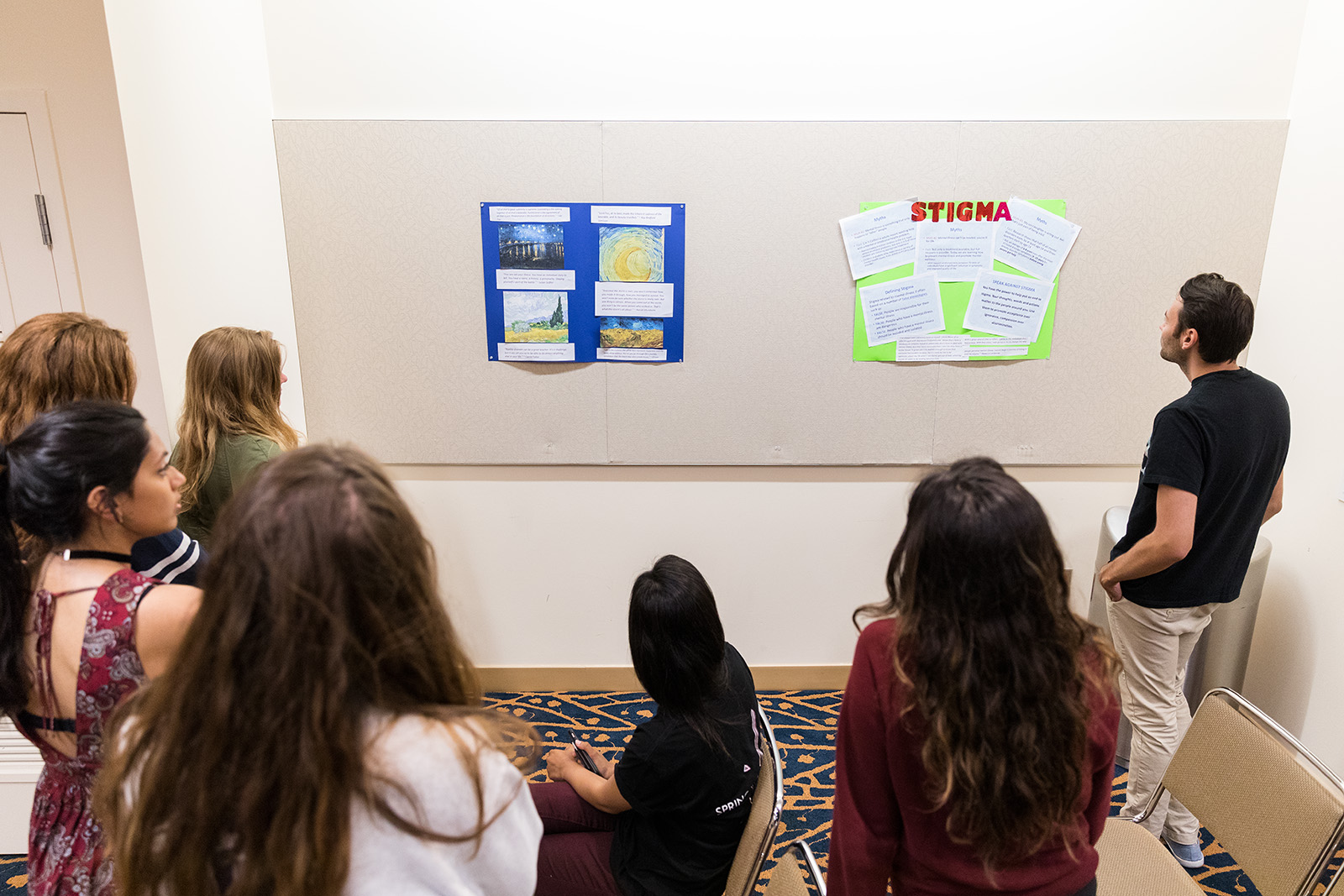Students hold event to discuss science, stigma of bipolar disorder

Students gathered at an event about the science of bipolar disorder and the stigma surrounding it at Carnesale Commons on Tuesday night. (Dayoung Lee/Daily Bruin)
By Emily Merz
June 1, 2017 1:41 a.m.
A student speaker shared her friend’s experience with bipolar disorder at an event Tuesday night.
Shrita Pendekanti, a second-year neuroscience student, and Active Minds hosted “Know the Signs, Know the Science” in Carnesale Commons. About 15 people attended the event, which featured a discussion on the science behind bipolar disorder and the stigma surrounding it.
Active Minds, a committee in the undergraduate student government Student Wellness Commission,aims to educate students on mental health issues.
Pendekanti said bipolar disorder was a neurochemical disorder that can lead to depression and mania.
“Depression is characterized by lack of energy and feeling sad for a prolonged period of time,” Pendekanti said. “Mania is the other side of bipolar disorder.”
Pendekanti said one of her friends who had the disorder would experience manic episodes with hallucinations of imaginary creatures.
“It’s pretty hard to grasp,” Pendekanti said. “It’s a break from reality and a form of psychosis.”
Pendekanti said bipolar disorder is caused by an individual’s genetics and environment.
Treatment options include mood stabilizers, antipsychotics and antidepressants. However, it can be difficult for people with bipolar disorder to find a treatment that works for them since each treatment option affects people differently, she added.
Pendekanti said she wanted to host the event after one of her friends in high school told her she saw spiders crawling on her that were not there. Pendekanti realized her friend was experiencing bipolar manic hallucinations.
“I felt that as a friend I needed to know about the issue,” Pendekanti said. “Seeing it in friends and family made me want to host the event to bring light to the issue.”
Tim Vanco, education director of Active Minds and a third-year psychology student, said this event focused on the neuroscience of mental health, unlike most of Active Minds’ events, which often focus on individuals’ stories about their mental illnesses. He also said Active Minds hosted the event because bipolar disorder is often confused with mood swings.
During the event, Pendekanti showed a graphic of the brain that depicted how genetics can lead to polarity and read out the experiences of students with bipolar disorder who could not make it to the event.
“I want people to know that (Counseling and Psychological Services) is helpful,” said third-year political science student Sandra Carbajal in her written response. “Self care is not selfish.”
In addition to understanding the science behind bipolar disorder, Pendekanti said students should speak out when they hear something that promotes stigma.
“As friends, be more accepting. Don’t throw around the word ‘depressing,'” Pendekanti said. “We are in a war against stigma. It’s up to all of us.
Pendekanti said that while turnout was small, she hopes to host more “Know the Signs, Know the Science” events next year.

